CarEdge saved me over 4,500 dollars on a brand new Honda Pilot. I can't say thank you enough.
Price intelligence
Find a wide range of vehicle listings with market insights on new and used listings near you.


Help us personalize your CarEdge experience — it only takes a second.
Your answers help us personalize your CarEdge journey — we’ll follow up with tips and next steps that match your buying timeline.

We recently shared the 2023 models with the biggest price hikes. Now, we’re back with the cars and trucks with the smallest price hikes for the 2023 model year. I must say, there are some surprises here. We’ll start off by taking a look at the price trends for the 25 best-selling models in 2022. Unfortunately, Honda grabs the attention with some of the most anti-consumer price changes in recent memory.
Let’s dive in.
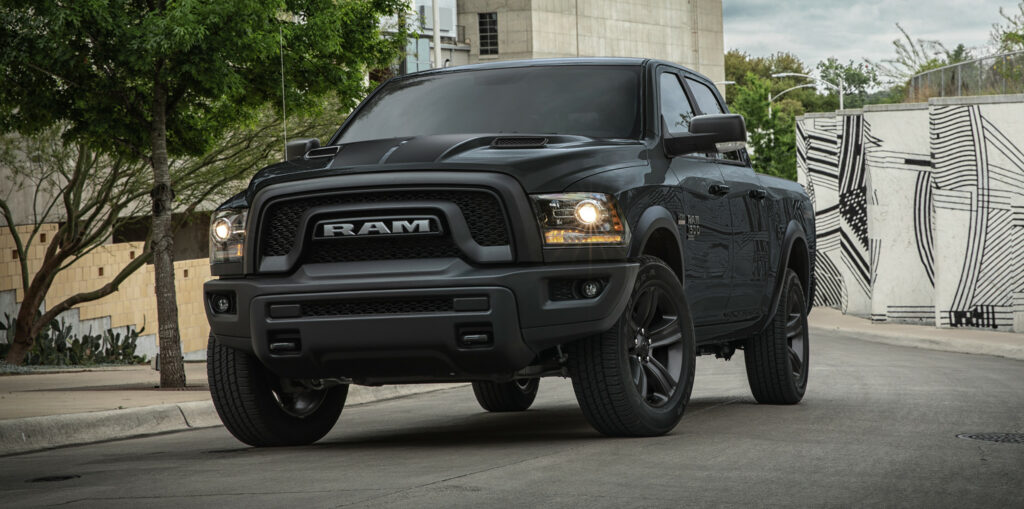
The table below shows 2023 pricing for base models and mid-spec trim options in an effort to provide more useful price comparisons. We’ve included how much the 2023 pricing has changed as a percentage.
Notice that two of the top-selling models actually have price decreases for 2023. And after years of demand outpacing supply, Tesla prices are holding steady. Still, the vast majority have MSRP increases between 3% and 10%.
America’s best-selling vehicle is now a lot more expensive. The 2023 F-150 Lariat, the popular mid-spec truck, is now $8,440 more expensive. The F-150 Limited sees a similarly huge price bump, and now tops out at $85,950. Apparently the F-150 now has Super Duty pricing. The F-150 Lightning went from a $40,000 electric truck, to a $60,000+ EV.
Update January 16th, 2023: Tesla has slashed their prices by up to 20% for some models.
What the heck is going on at Tesla? Overnight they dropped the price of the Model Y Long Range to $52,990, a full $13,000 less than its previous price of $65,990. 🤯 pic.twitter.com/EcZo6wXIiY
— Zach Shefska (@shefska) January 13, 2023
Tesla prices rose 25% from 2021 through early 2022. Now, prices haven’t changed since June 2022. In China, Tesla prices have actually fallen, leading to in-store protests from frustrated customers who bought a few days too soon. The Rear-Wheel Drive Model 3 does now qualify for up to $7,500 in federal tax credits. More on that here.
The Full Story: What’s in Store for Used Tesla Prices in 2023
It’s a frustrating trend, one that we hope Honda fans will speak out against. Honda clearly wants you to spend more in 2023. As with the CR-V, they’ve dropped the base Civic LX, effectively raising the entry-level Civic to $26,145 in 2023. It’s happening to the 2023 CR-V too. Honda eliminated the base LX trim, forcing a nearly $5,000 price increase for the entry-level CR-V.
At least Honda is offering several more options for those wanting a hybrid powertrain in 2023. The Sport, EX-L, Sport-L and Touring trims all come as hybrids. The 2023 Touring Hybrid starts at $38,985, which is $600 LESS than the 2022 Accord Touring.
Our Expectations For Car Price Trends in 2023: Car Prices Fall as Dealers Suffer
The 2023 Ford Escape gets a complete makeover, and with it comes a new trim lineup. That makes price comparisons tricky, but like for like, the 2023 Escape’s pricing remains about the same. In fact, the 2023 Escape ST-Line is $1,000 cheaper than the outgoing 2022 Escape SEL, its closest analog. Higher trims of the 2023 Ford Explorer also see steady prices.
We can’t say the same about other Ford models. The F-150 is seeing prices go up by 7% to 17% in 2023, and the all-electric F-150 Lightning now costs about $20,000 more than it was originally priced.
Toyota Corolla prices have actually gone down in 2023 for the Hybrid LE as Toyota makes way for the new hatchback Corolla. The 2023 Corolla Hatchback SE starts at $24,060 with destination fees.The Camry and Highlander also saw very minor price increases, with prices going up by about 1% across trim levels.
Altima prices nudged up slightly, but that’s no surprise. Nissan’s Altima sales have been on the decline for years now. In 2019, Nissan sold 209,000 Altimas in the U.S. In 2022, Nissan sold 140,000 Altimas in the American market.
New car prices are trending ever higher, even as supply finally catches up to demand. So, where are the best car deals in 2023? Head on over to the used car market for lower prices. Used car prices have been falling for several months, and we expect this trend to continue. Here are some CarEdge resources to get you started on your journey:
The Latest Used Car Price Update (Weekly Updates)

Interest rates are rising, and inflation is at record highs, but deals can still be had when buying a new car. Every month, the team at CarEdge pores over the latest offers from every automaker. The result is a one-stop resource to share the very best new car deals with you.
Not finding what you’re looking for? We’ve included links to each automaker’s website. Check back frequently, as this living page will be updated regularly.
Check out these other CarEdge car buying resources:
The Best Auto Loan Rates Right Now
The Best Lease Deals This Months
These 5 Brands Are Negotiable Right Now
Finance Buick SUVs (Encore, Envision, Enclave) at 3.99% APR for 72 months.
Buick Encore: $179 per month for 24 months with $5,449 due at signing
Buick Envision: $279 per month for 24 months with $3,739 due at signing
Cadillac CT4: $439 per month for 36 months with $3,749 due
Cadillac XT4: $379 per month for 36 months with $3,579 due at signing
See Cadillac listings near you.
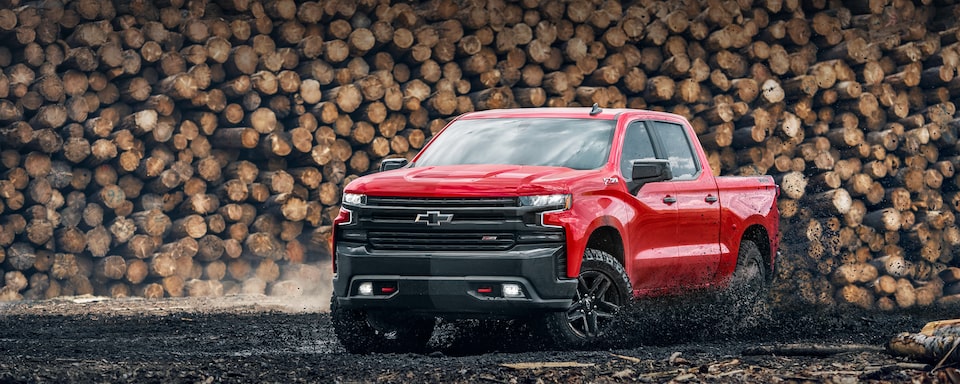
Best Chevrolet financing offer:
2.99% APR for 60 months for the Silverado 1500, Colorado and Equinox.
Chevrolet lease deals:
Chevrolet Trailblazer: $259 per month for 24 months with $3,109 due at signing
Chevrolet Blazer: $279 per month for 24 months with $2,369 due at signing
Silverado 1500 Crew Cab 4WD LT: $399 for 36 months with $3,579 due at signing
See details on Chevrolet deals.
Chrysler Pacifica Hybrid: $599 per month for 39 months with $5,499 due at signing
See details on Chrysler deals.

In February, Ford is advertising 3.9% APR for 60 months for select models
Learn more about Ford deals at Ford.com.
Best GMC financing offer:
2.99% APR for the GMC Sierra 1500
3.9% APR for the GMC Terrain
GMC lease offers:
GMC Acadia: $289 per month for 24 months with $2,309 due at signing
GMC Terrain: $279 per month for 24 months with $3,949 due at signing
Best Honda financing offers:
Honda Pilot, Passport, Ridgeline: 1.9% APR for 24 – 48 months
Best Honda lease offers:
Honda Civic: $269 per month for 36 months with $3,399 due
Honda CR-V: $349 per month for 36 months with $4,499 due
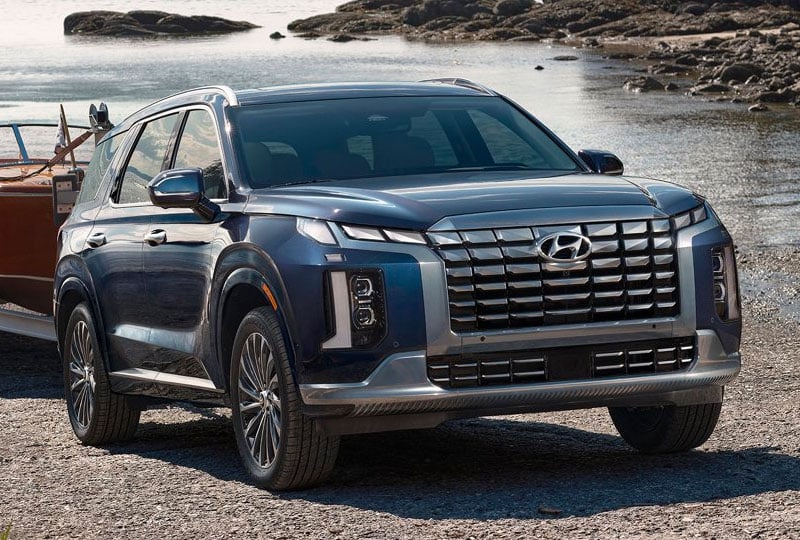
Hyundai lease offers this month are good, but the amount due at signing has increased this month.
Hyundai Venue: $151 per month with $3,281 due
Hyundai Elantra: $219 per month with $3,299 due
Hyundai Kona: $209 per month with $3,999 due
Hyundai Tucson: $279 per month with $3,999 due
Hyundai Santa Fe: $269 per month with $3,999 due
See details on Hyundai lease and finance deals.
Jeep leases are attractive in February.
Jeep Wrangler: $409 per month for 42 months with $5,099 due at signing
Jeep Compass: $347 per month for 42 months with $3,799 due at signing
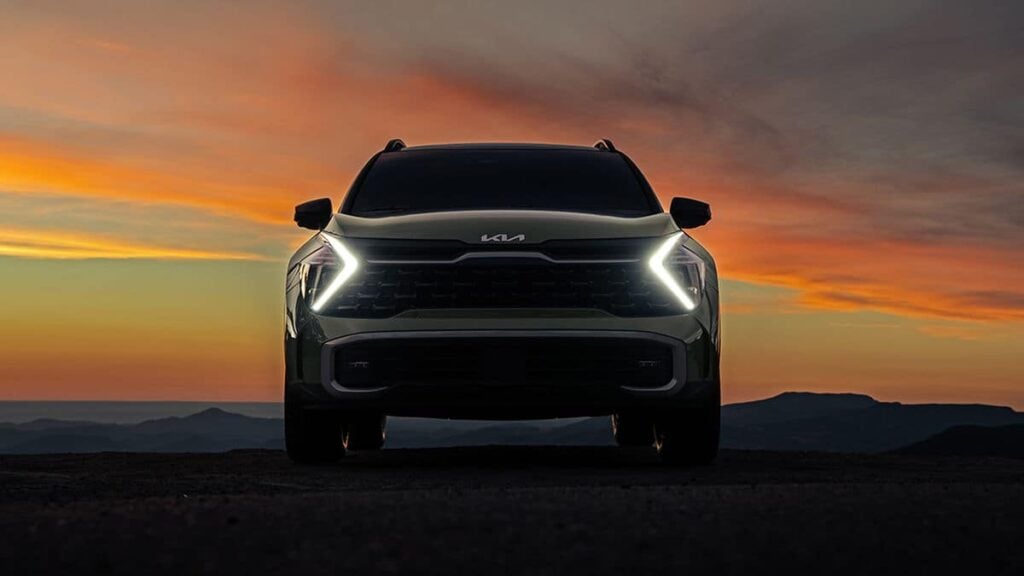
Best Kia financing offer:
2.9% APR for 48 months
Kia Forte
Kia Sorento (2022)
Kia Soul
Best Kia lease offers:
Kia Sportage: $279/month for 36 months with $3,499 due
Kia Seltos: $249/month for 36 months with $3,320 due
See details on Kia deals at Kia.com.
3.49% APR for 48 months for the RX.
$2,000 lease cash for select RX styles.
ES 250 AWD: $509/month for 39 months with $3,999 due
See details on Lexus deals at lexus.com.
Best Mazda financing offer:
2.49% APR for 36 months + NO payments for 90 days
Best Mazda lease offers:
Mazda CX-30: $239 per month for 24 months with $2,999 due at signing.
Mazda CX-5: $299 per month for 33 months with $3,499 due at signing.
See details on Mazda deals at Mazdausa.com.
0.0% APR for 36 months
1.9% APR for 36 months
Nissan Altima: $199 per month for 18 months with $2,309 due
Nissan Leaf: $269 per month for 36 months with $5,259 due
Nissan Rogue (AWD): $299 per month for 36 months with $3,459 due Nissan Murano (FWD): $299/month for 24 months with $2,099 due
Learn more about Nissan deals here.

4.9% APR for 72 months and no payments for 90 days for the Ram 1500 and Ram 2500
$4,000 cash allowance for Ram 1500
Lease: Ram 1500: $309/month for 42 months, $5,499 due
Learn more about Ram deals at Ramtrucks.com.
Best Subaru financing offers:
2.9% – 3.9% APR for 48 months for these models:
The best Subaru leases:
Subaru Outback: $345 per month for 36 months with $3,515 due
Subaru Ascent: $359 per month for 36 months with $3,259 due
Best Toyota financing offers:
2.99% APR for 60 months
3.49% APR for 48 months
Toyota Corolla Cross: $331 per month for 39 months with $2,976 due
Toyota RAV4: $413 per month for 36 months with $3,063 due
Toyota Highlander: $393 per month for 39 months with $4,053 due
Learn more about Toyota deals here.
With interest rates rising and inflation putting pressure on automakers and their dealer networks, the only thing that could bring better new car deals would be plummeting demand. We’ve seen signs of weakening demand and higher new car inventory, but nothing considered drastic. Expect auto loan interest rates to climb in 2023. The best car deals in February won’t last.
These are the 5 car brands you CAN negotiate right now!
Thinking about factory ordering? These are the latest wait times our community is reporting.
These are the most marked-up new cars in 2022
Looking for something else? Visit our blog, or consult 1:1 with a real CarEdge Auto Expert to get customized help with your car deal. It could save you thousands!

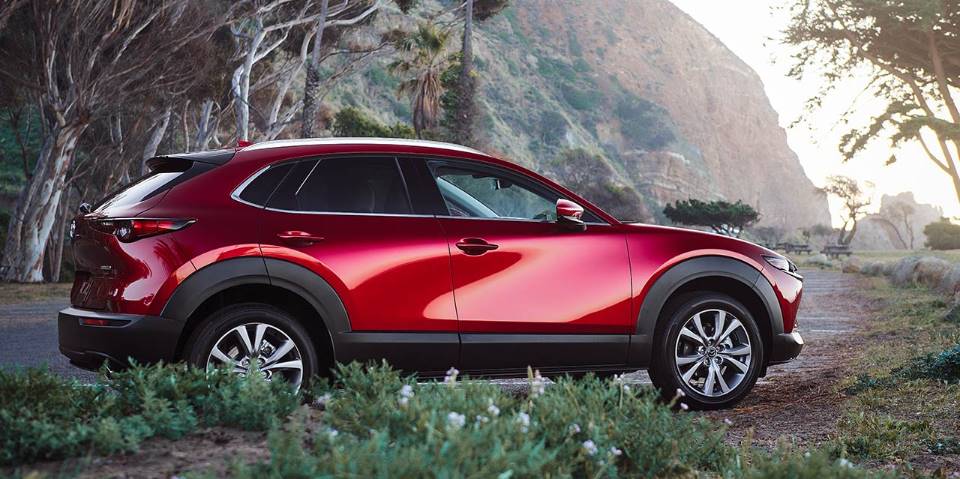
Every year, Consumer Reports sends dozens of car models through half a million miles of track testing and data collection. The non-profit organization buys all of its test cars anonymously from dealers and does not accept free samples from automakers. The Consumer Reports testing regimen includes more than 50 scientific tests on every vehicle it evaluates.
The respected organization combines their findings with survey data from their 6 million subscribers to publish their annual Consumer Reports brand rankings. The pinnacle of the Consumer Reports’ annual rankings is the overall scores tallied for each brand.
In 2022, Consumer Reports scored 32 automotive brands based on their overall scores in reliability, consumer satisfaction, road testing and safety. This year’s rankings bring surprising changes and a new leader.
Subaru climbed two spots to number one in the 2022 Consumer Reports brand rankings. The Japanese automaker known for standard all-wheel drive dethroned Mazda with an overall score of 81. The 2022 Subaru Forester has ranked among Consumer Reports’ top picks for the 9th consecutive year. Fascinatingly, six of the top 10 brands in 2022 are Japanese automakers: Subaru, Mazda, Honda, Lexus, Toyota and Infiniti.
The highest ranking American automakers in 2022 are Buick (72), Chrysler (71), and Dodge (67). Cadillac and Ford just barely passed the test, scoring 63 and 62 overall. Chrysler and Dodge have been known for reliability issues in the past, so it’s great to see them improving. Likewise, BMW’s luxury vehicles have long been known for their maintenance expenses, so to achieve #3 overall is a notable feat.
As more automakers make advanced safety features standard on their models, the weight of Consumer Reports’ safety scoring is separating the winners from the losers.
With Subaru now number one overall, Mazda falls to second place, followed by BMW, Honda, Lexus, Audi, Porsche, Mini, Toyota, and Infiniti. Here are the overall brand scores from Consumer Reports.
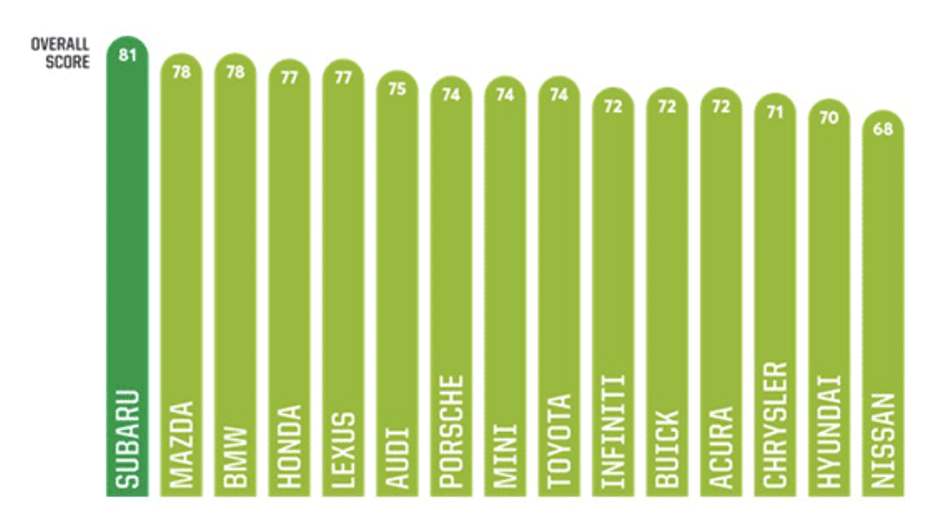
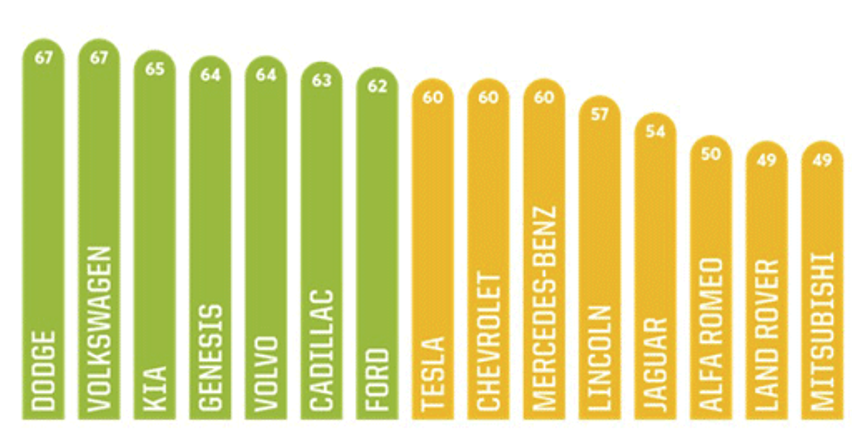
Tesla fell seven spots to #23 in Consumer Reports’ overall brand rankings. In a press release, Consumer Reports cited the so-called ‘yoke’ steering wheel in the refreshed Tesla Model X and Model S as causes for concern and consumer dissatisfaction. Jake Fisher of Consumer Reports told Automotive News that Tesla’s tendency to push the limits is partly to blame. “It dropped more than any other automaker, kind of due to their own decisions,” he said.
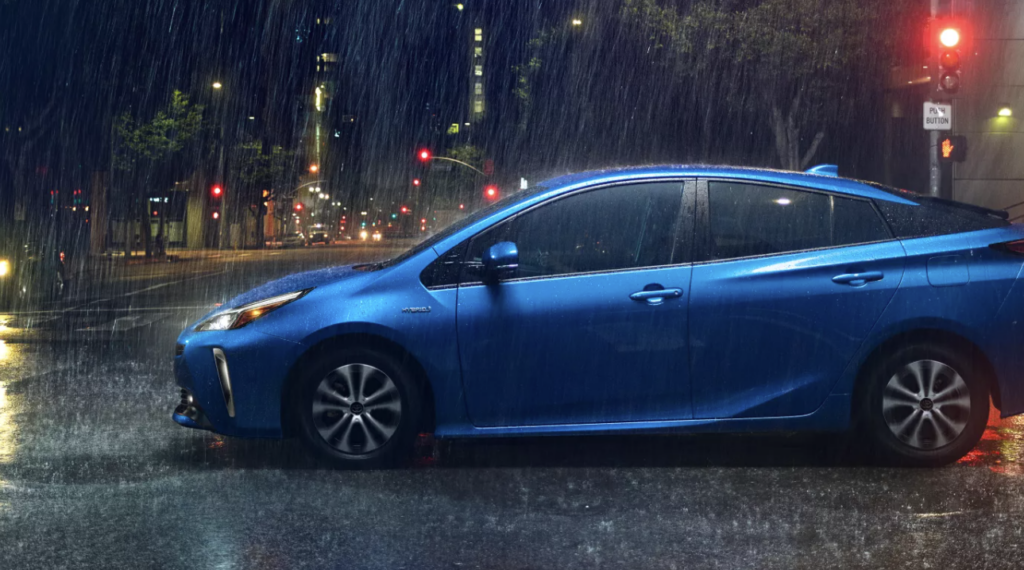
Everyone’s talking EVs, however Toyota’s hybrid powertrains remain the top-rated low-emissions choice at Consumer Reports. As part of their focus on low-emissions transportation, CR included the Green Choice designation for the second year. Toyota (9th overall) leads the Green Choice awards with 11 hybrid and plug-in hybrid models on the list.
What’s particularly interesting about this is the fact that Toyota has yet to release a single fully-electric vehicle. Their first, the 2023 Toyota bZ4X, is due to arrive later this year.
You can access the detailed 2022 Consumer Reports brand rankings with a membership to the non-profit.
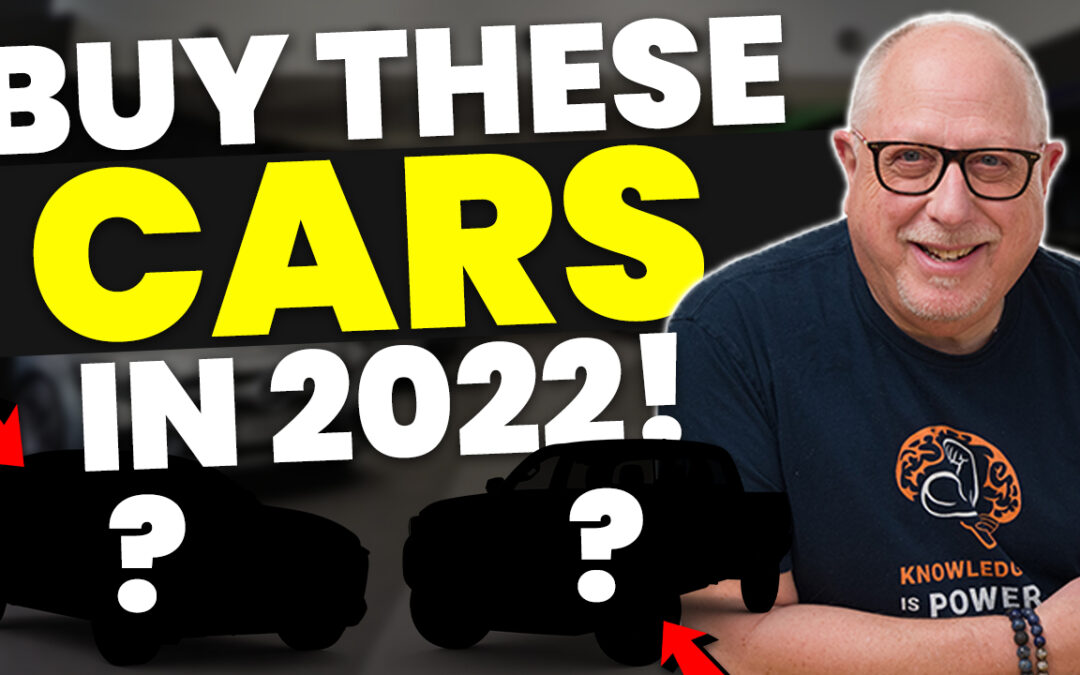
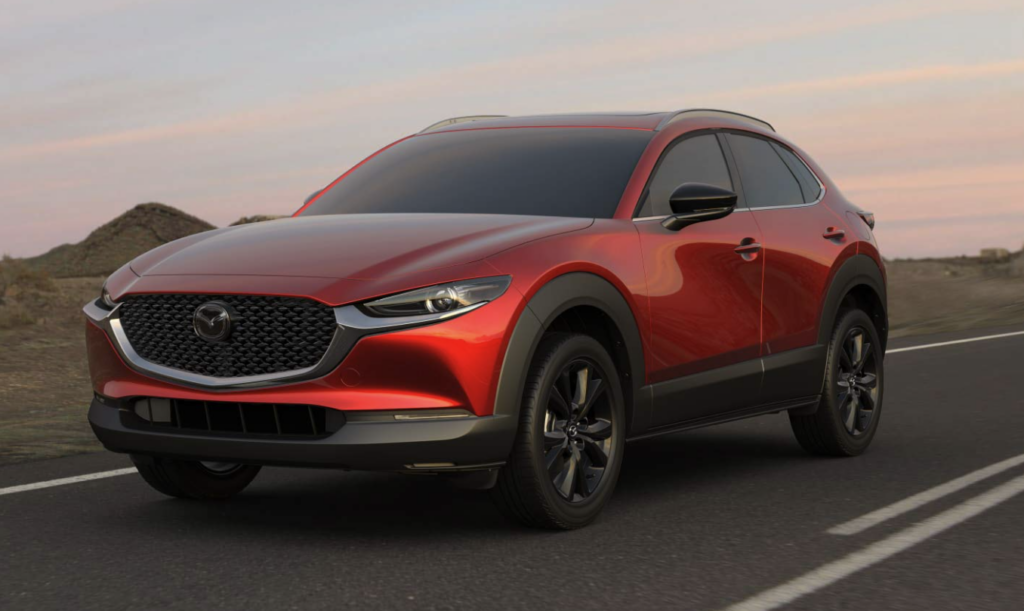
CarEdge recently shared 5 vehicles to avoid in 2022. What about the best deals on the market today? These five vehicles have high resale values, excellent reliability, and reasonable prices. If you’re looking to make a purchase you won’t regret, these 5 models are safe bets. Here are the best cars to buy in 2022.
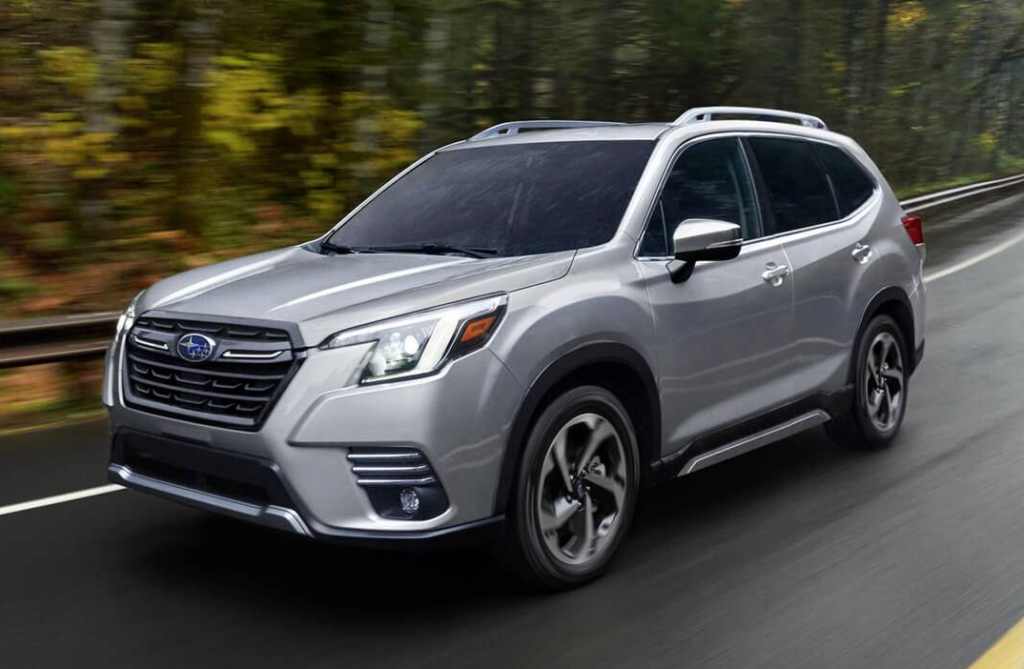
Why are there so many Subarus on the road these days? Drivers love their all-wheel drive crossovers, and Subaru represents the best of the best. Subarus consistently retain unusually high resale values, and that helps to soften the impact of today’s higher prices. The Subaru Forester is known for solid reliability (especially in older models) and class-leading safety ratings. Today’s Subarus also get decent fuel economy, especially on the highway. All-wheel drive and a comfortable, spacious interior make the Subaru Forester the ultimate all-weather roadtripper. The challenge will be finding one. Subaru has been hit hard by the chip shortage, but things may improve later this year.

Reviewers and owners love the agile handling, generous interior of the Mazda CX-30. New for 2022, the CX-30 now comes with standard all-wheel drive and a more plush interior. In today’s market, the CX-30 represents the best value within the Mazda line. The Mazda CX-30 is ‘only’ up 23%, much less than the overall Mazda brand, which is up 35% year-over-year. Cost of ownership is relatively low for the CX-30, and a great factory warranty offers peace of mind. This is the Mazda to buy in 2022.
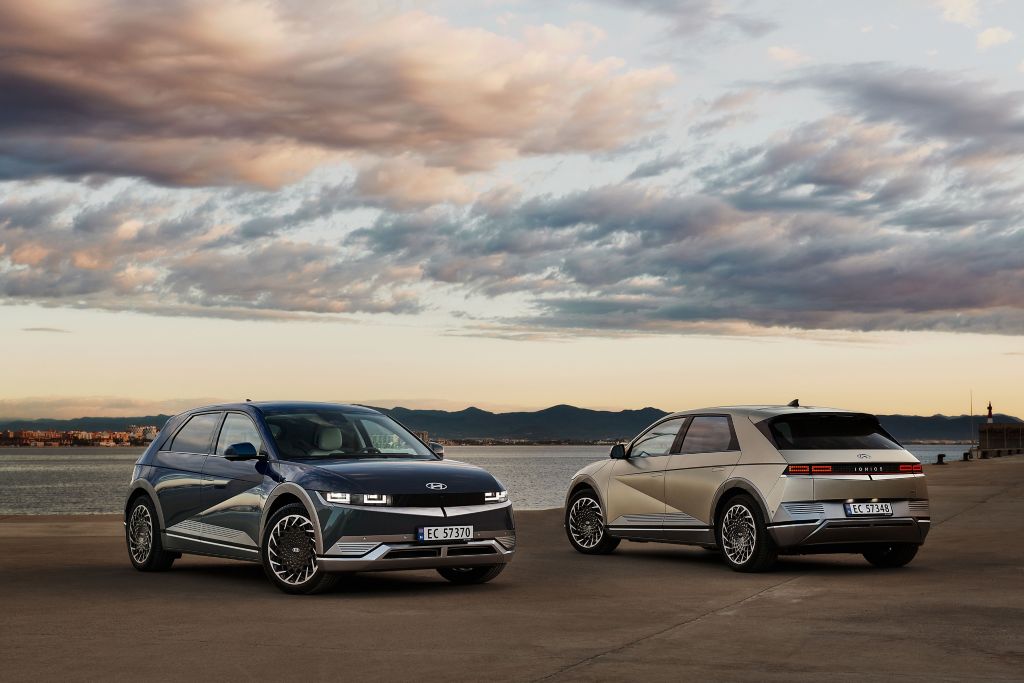
This retro-inspired family-sized electric crossover is sure to stand out on the road. Over the past few decades, Hyundai has completely transformed its reputation in North America. Now, Hyundai’s push to electrification sees the brand strengthening its image as a tech-savvy and reliable automaker. The IONIQ 5 is the fastest charging electric vehicle you can buy for under $50,000. Two years of FREE charging at Electrify America can save frequent travelers thousands of dollars. The $7,500 federal tax credit for electric vehicles is icing on the cake. We recently covered the IONIQ 5 in-depth at CarEdge, check out our first look here.
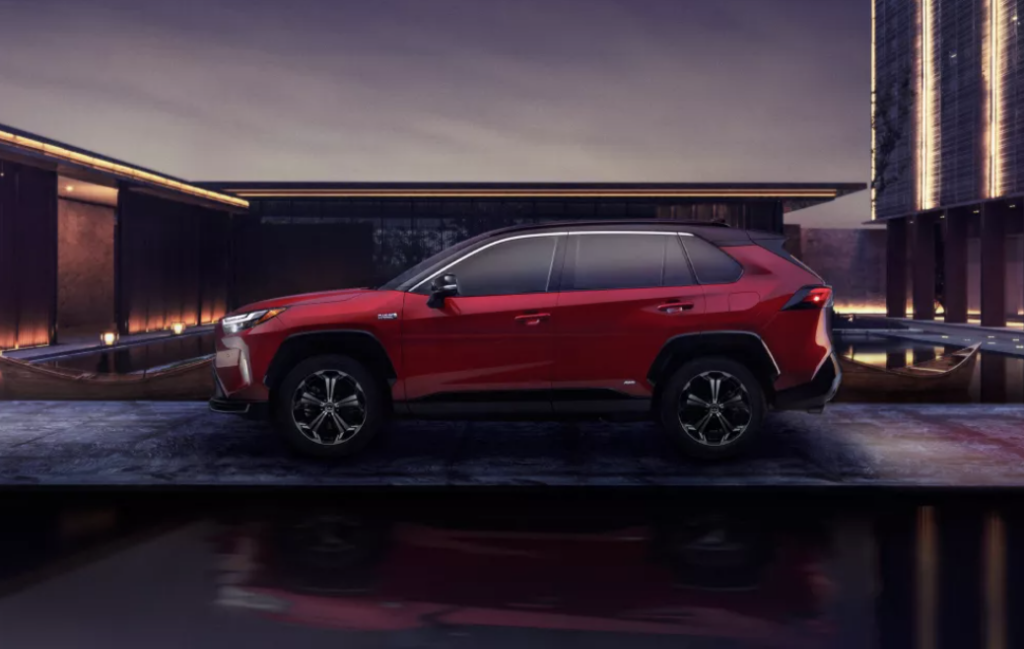
You’re probably not shocked to see Toyota on the list of the 5 best cars to buy in 2022. Over the past year, the Toyota RAV4 Prime has not appreciated to the extent that many of its competitors have. The RAV4 Prime combines Toyota’s superior build quality with an innovative powertrain meant to bridge the gap between combustion and EVs. Expected resale value is 67% after five years, which is incredible.
The 2022 RAV4 Prime features a spacious interior and a surprising amount of power with a 0-60 time of 5.7 seconds. If you’re thinking about going electric but can’t quite overcome range anxiety, this is the vehicle for you. There’s a hybrid engine (gas-powered) under the hood, an electric motor up at the front, and another electric motor powering the rear axle. These three power plants combine forces to provide standard all-wheel drive, the option of all-electric driving, and range-boosting hybrid mode when going the distance. You can plug in, but you don’t have to. The RAV4 Prime is a future-proof Toyota at under $50,000!
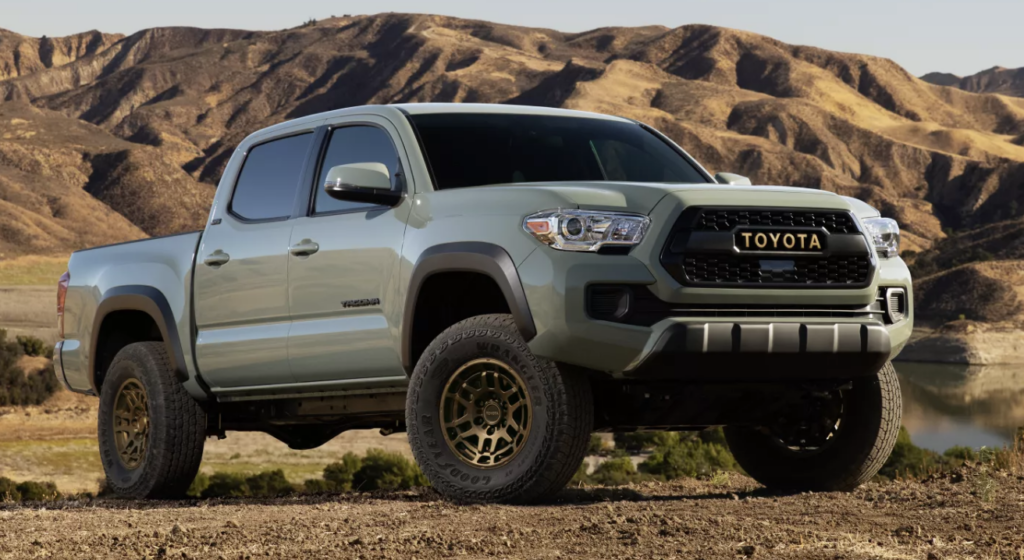
Low cost of ownership, plenty of utility and the highest resale value on the market earns the Toyota Tacoma top honors. After five years of ownership, you can expect to retain 79% of the original value with the Tacoma. That is remarkable! The 2023 Tacoma refresh brings a new engine and muscular looks to the popular truck. The Tacoma is a safe bet in the crazy auto market in 2022. Your best chance to get one is to put your name on a dealer allocation. The Tacoma doesn’t sit on the lot for very long with value like this.
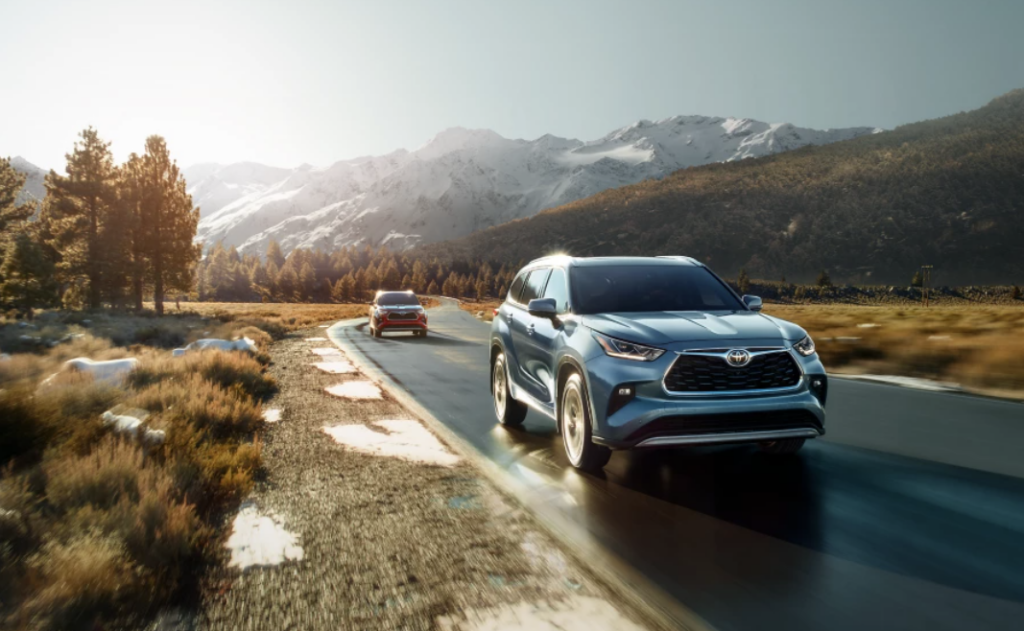
The Toyota Highlander is a family-sized SUV with great resale value. Toyota as a brand is up 40% on the used car market, but the spacious and reliable Highlander is ‘only’ up 33%. Not bad considering today’s circumstances. J.D. Power gives the Toyota Highlander top scores for reliability.
CarEdge Is Here to Empower the Consumer
Did we miss anything? What would your list look like? Let us know if you agree with our CarEdge top picks. If you think we missed the mark, we’d love to hear your top cars to buy in 2022.
Don’t forget to check out the CarEdge list of 5 vehicles to avoid in 2022. Our picks came as a shock to some, but we shared exactly why you should steer clear of these models for now.
It’s a strange time to be in the market for a vehicle. Don’t go it alone! At caredge.kinsta.cloud, we strive to empower the consumer with car buying know-how that makes finding your next vehicle less of a pain. CarEdge Car Search provides unique auto industry insights that other car listings don’t show you. CarEdge TotalPrice™ shows you the out-the-door price so that you know what to expect before you walk into the dealership.
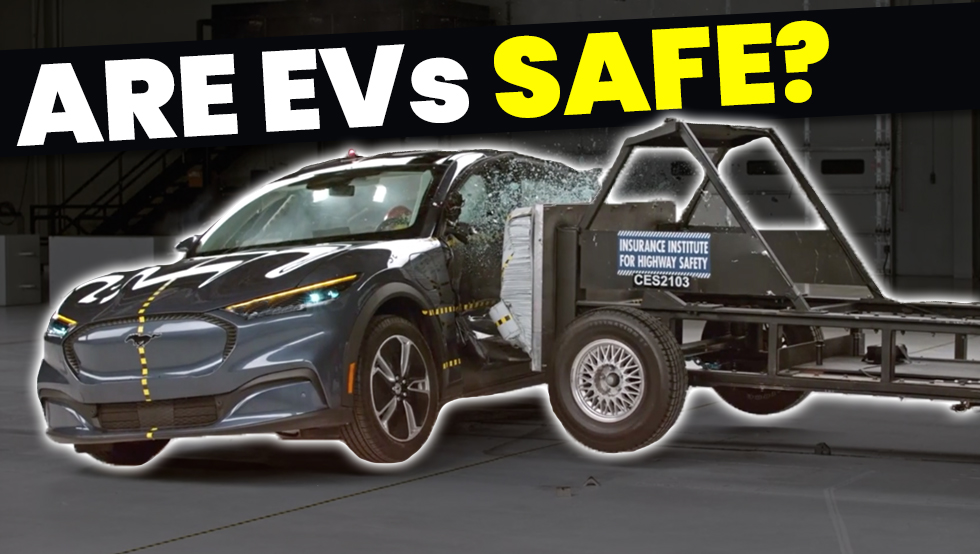
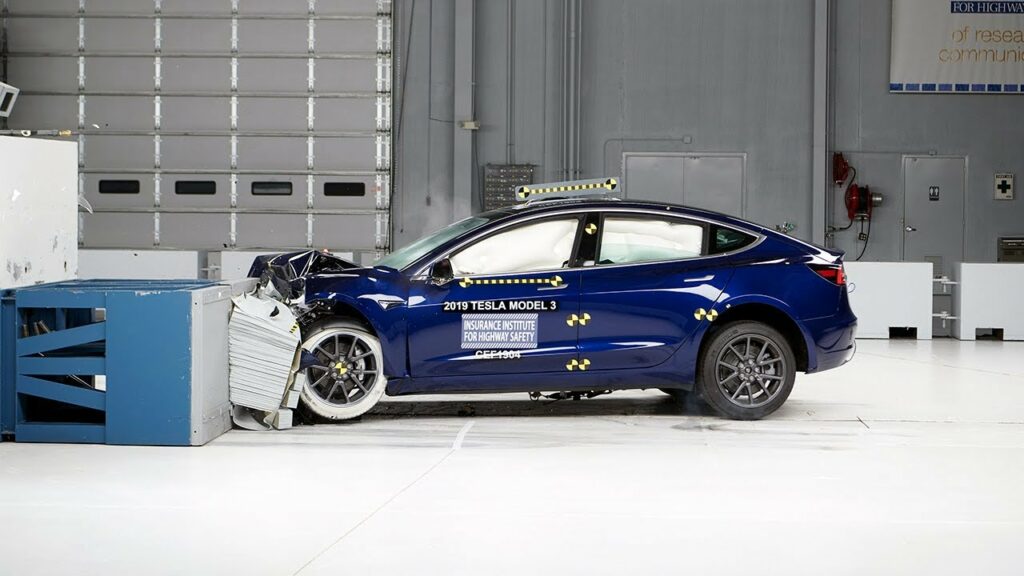
Your opinion of electric vehicles likely depends on which side of the news you’ve seen. If you know anything about the Chevy Bolt hazard, you might even scurry to the other side of the street when you encounter one. But does the data support EV skepticism, or is the big picture something different altogether? Do we even have enough data to draw firm conclusions? It’s important to get down to the facts, and that’s our goal today. Here’s what crash test ratings, vehicle fire statistics and real-world data can tell us about electric car safety in 2022.
The National Highway Traffic Safety Administration (NHTSA) and the Insurance Institute for Highway Safety (IIHS) conduct standardized crash testing for vehicles that possess the potential to become popular and sell in big numbers. If it’s popular, they’re going to crash it and collect data. These two crash testing programs don’t treat electric vehicles any differently than they would a traditional combustion-powered vehicle.
As a refresher, here are the crash tests conducted by the NHTSA and IIHS:
The following additional tests are conducted by the IIHS:
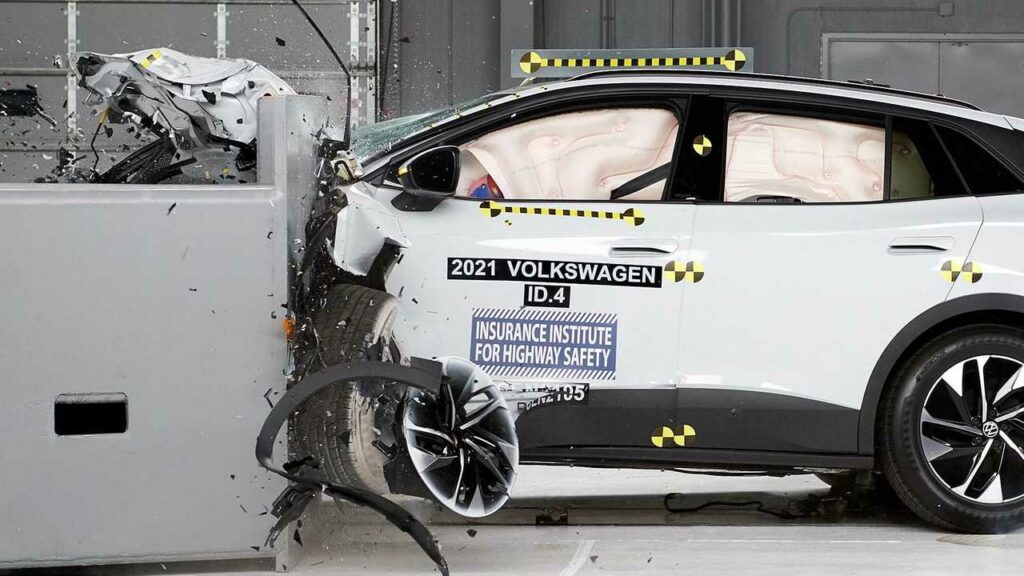
How do electric vehicles perform in these crash tests? Take a look at the limited data we have.
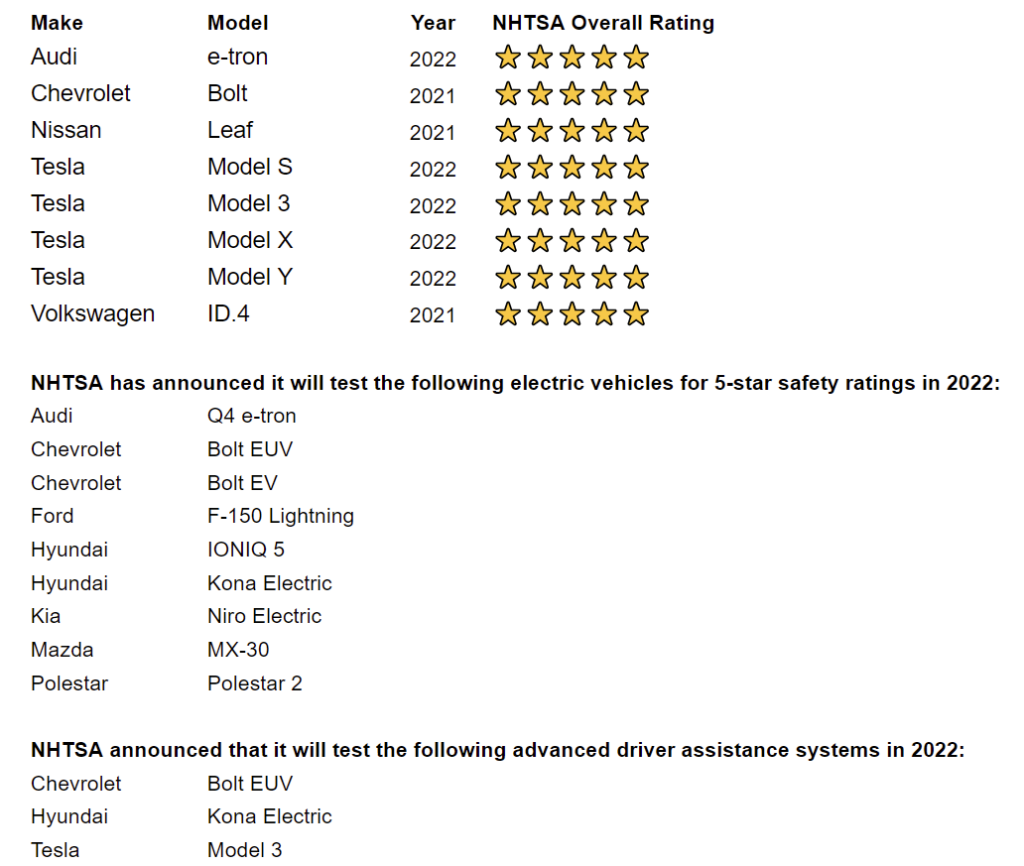
The Insurance Institute for Highway Safety (IIHS) does not provide overall ratings. They instead provide dozens of ratings for many different safety metrics. You can check out their ratings here.
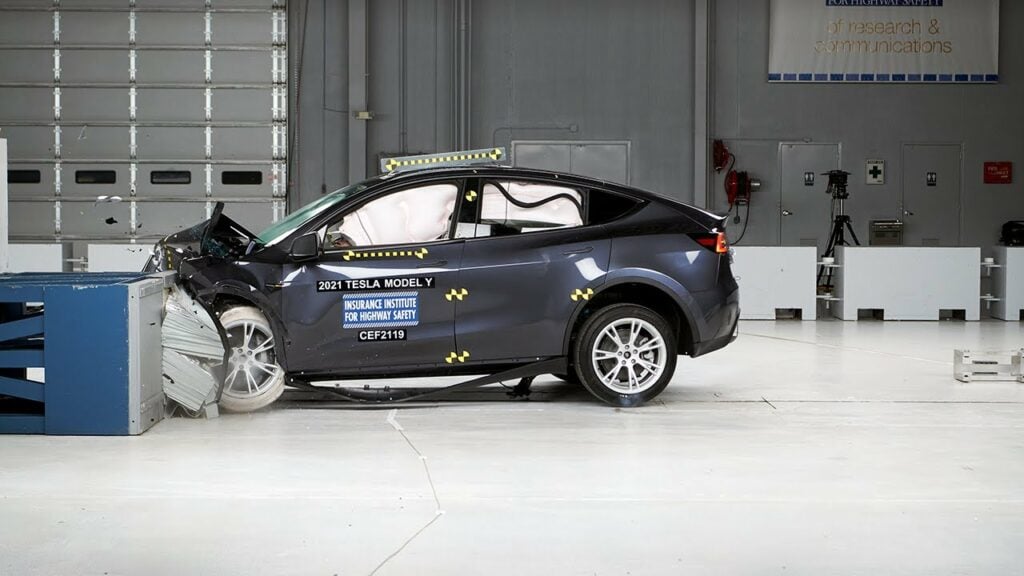
This data from the NHTSA and IIHS shows that while data is limited (but growing), all EVs tested so far have received excellent solid ratings. In fact, all eight electric models tested by the NHTSA in 2021-2022 earned five-star ratings. Considering that over 70% of EVs sold in the US are Tesla models, these ratings do represent the vast majority of EVs on American roads today. Still, far more testing is needed with so many electric models coming in 2022.
The IIHS sees the trends in their own data: EVs are actually making passenger vehicles safer than ever before. In a 2021 IIHS report on electric vehicle safety, they shared what they’ve learned so far.
“Evidence is growing that electric vehicles are at least as safe as conventional ones, with two more vehicles that run exclusively on battery power earning safety awards from the Insurance Institute for Highway Safety. In addition, an updated analysis of insurance data shows injury claims are substantially less frequent for such vehicles.”
Those are powerful words from an insurance-minded crash-tester. We definitely need more electric car safety testing. EV sales made up 6.5% of American auto sales in 2021, and that figure is expected to reach or exceed 40% by 2030. One useful safety test would be comparing how long it takes to extinguish a fire for each EV model. I’d love to see that testing implemented for the safety and preparedness of our first responders.
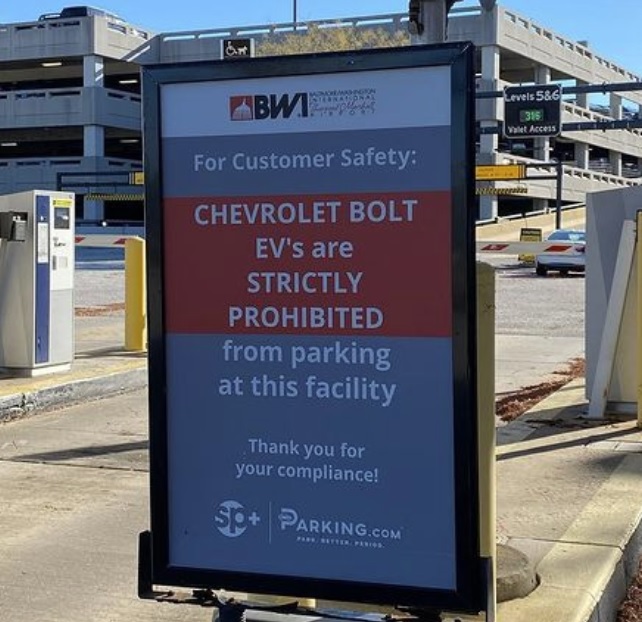
Whether you prefer a vehicle that requires gasoline, diesel or battery packs, all vehicles are built to haul around what are essentially concentrated energy sources. That’s how the vehicle converts potential energy in the form of combustible carbon or electrons into kinetic energy to get you from A to B. The latest and greatest battery chemistries pack more power than ever before into battery cells, but they also claim to be safer. However, any concentrated energy source is volatile under certain conditions. That’s why we don’t light matches at the gas pump. What about EV batteries? Are they a fire hazard worthy of extraordinary caution?
The CarEdge team recently dug deep into the latest EV battery fires that have made the news, and our findings certainly shed light on the facts. Here’s a summary of what the data and engineering investigations featured in our EV battery fire report reveal.
Data compiled by the National Fire protection Association (NFPA) and the US Department of Transportation shows that among all vehicle types, there’s an average of one vehicle fire per 19 million miles driven. Both the NFPA and the Center for Auto Safety say there is not yet a centralized database for electric vehicle fire statistics. In an effort to address the lack of information surrounding EV battery fires, Tesla decided to begin releasing statistics in their annual impact reports.
Tesla’s 2020 Impact Report says that from 2012-2020, there’s been one Tesla fire per 205 million miles traveled. The fact that Tesla models made up 79% of American EV sales in 2020 highlights the relevance of their data. Unfortunately, other automakers haven’t released comparable data (we’re looking at you GM!). We’re hopeful that will change soon.
Source: Tesla
This comparison doesn’t hide the fact that one other EV model has had major problems. The ongoing Chevrolet Bolt recall is costing GM and battery supplier LG a few billion dollars to resolve. There have also been sporadic incidents with other EVs. The Hyundai Kona briefly made headlines with multiple fires, but a fix was quickly implemented. It seems like every Tesla fire makes it into the news, even though there are not many.
Despite the statistics showing just how rare and isolated the events are, EV fires are real, and every one is worthy of proper investigation. The same goes for any vehicle fire.
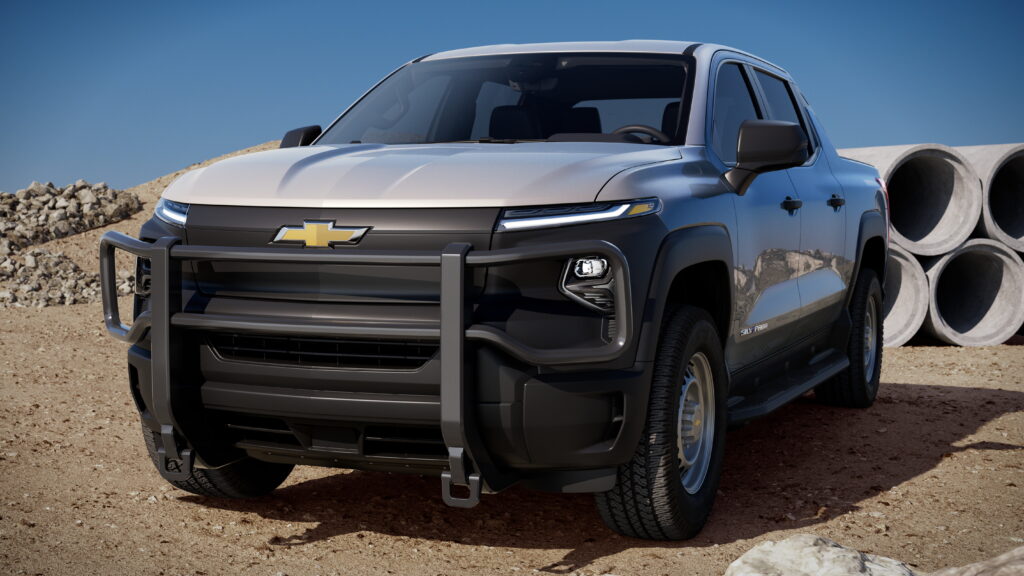
Although Tesla’s data suggests that EVs are less prone to car fires than combustion vehicles, there are major safety concerns for the firefighters who extinguish the flames when an EV fire does occur. Firefighters need special training to learn how to safely approach EV-related incidents, but only two-thirds of departments have had the opportunity due to funding constraints. Automakers need to come forward and support our first responders with training and resources to prepare for the electrification of the auto industry.
EV fires require A LOT more water to extinguish. Tesla’s First Responders Guide recommends 3,000 to 8,000 gallons of water on hand to put out a Tesla fire. Some fires have needed 30,000 gallons of water to extinguish. Basically, firefighters have to do whatever it takes to cool down the battery, and that’s really hard to do with so much energy densely packed into the pack. Once the fire appears fully extinguished, there’s a chance it could still flare up, even days later. Towing services and junkyards are advised to park damaged electric vehicles at least 50 feet from other vehicles in the yard. As EVs become more popular, that might not be feasible in just a few years.
When cars launch full-speed ahead without warning, we have a major problem. Fortunately, that has not been proven to have occurred following dozens of investigations over the years. A number of serious accidents involving EVs have resulted in drivers claiming that the car accelerated on its own. Tesla vehicles have faced these accusations for years, but investigations have never found evidence of unintended acceleration. Plus, Tesla EVs are computers on wheels, and they maintain very detailed logs of all driver inputs. These logs are thoroughly inspected in every investigation.
The Department of Transportation’s National Highway Traffic Safety Administration (NHTSA) determined that reports of sudden unintended acceleration involving four different Tesla models were due to user error. In other words, the driver mistakenly smashed the accelerator pedal. With so much torque and instant feedback, that’s enough to launch a Tesla like a rocket. Depending on where that rocket is aimed, it could go launching right into harm’s way. The lesson here? Powerful EVs demand more attention than some drivers are used to. Electric car safety features can only go so far if drivers are careless or over confident.
Hyundai recently recalled 2,700 2017-2019 Ioniq electric vehicles (the generation prior to the all-new Hyundai IONIQ 5) to correct a rare but scary defect that may cause the Ioniq to accelerate after the driver releases the accelerator pedal when in ‘limp mode.’ With no accidents reported, it appears as though Hyundai got ahead of this issue before anything tragic happened. As far as we (and the US government) know, no EVs have accelerated on their own without driver input.
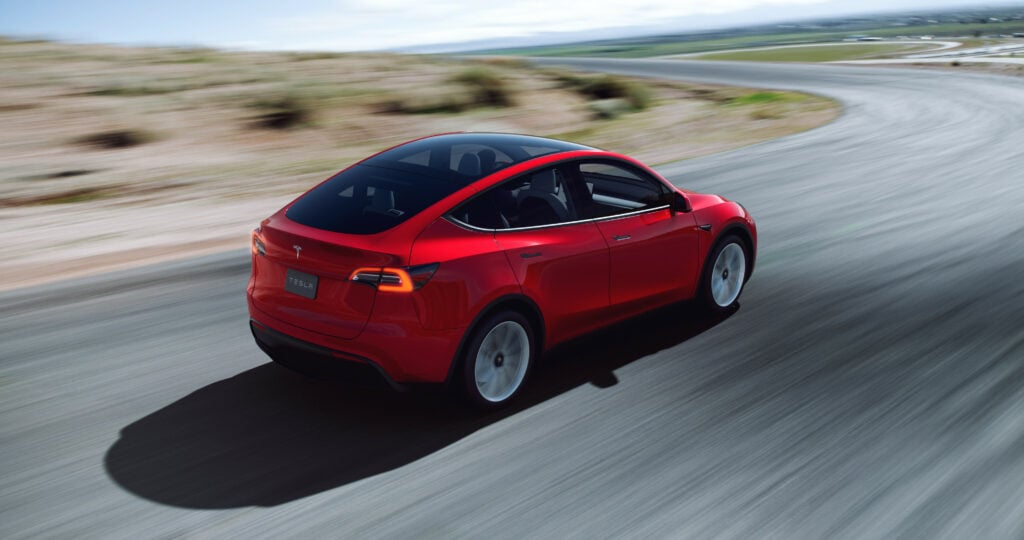
This is another headline grabber for Tesla. Anytime there’s a crash involving a Tesla on autopilot, it’s sure to make the news. Tesla Autopilot certainly has its faults, notably ‘phantom braking’ and difficulties with poor visibility. However, Tesla keeps track of their accident data from all Tesla vehicles worldwide, and this is what they’ve found as of December 2021:
“In the 4th quarter, we recorded one crash for every 4.31 million miles driven in which drivers were using Autopilot technology (Autosteer and active safety features). For drivers who were not using Autopilot technology (no Autosteer and active safety features), we recorded one crash for every 1.59 million miles driven. By comparison, NHTSA’s most recent data shows that in the United States there is an automobile crash every 484,000 miles.”
Although this is not independently verified, it’s intriguing data to say the least. Could Tesla Autopilot really be safer than human drivers? Considering that 15% of motor vehicle accidents in the US are attributed to driver distraction, it may not be all that surprising. More automakers are offering level 2 autonomous driving features. As Autopilot-like technology increases, electric car safety will be under the microscope. Learn more about Tesla’s annual safety report here.
Our goal at CarEdge is to provide you with factual information that’s useful for your decision-making process as you consider your next vehicle purchase. Why do we cover EVs so intently? Because industry insights show that major automakers are dead set on electrifying their entire lineups by 2035 at the latest. From Ford to GM and everyone in between, the story is the same. With hundreds of billions of dollars going towards EV development, it’s important to hold automakers accountable with such a nascent technology.
Over 2 million EVs are already on American roads and global EV sales totaled 4.5 million in 2021 alone. This is just the beginning. Sales of electric vehicles are expected to rise 75% to more than 8 million in 2022. Electric car safety is more important than ever. Are EVs safe? So far, it looks like electric vehicles are at least as safe as combustion vehicles. But when things go awry, EV fires are far more difficult to extinguish than what we’ve seen in the past, and that’s a concern worth addressing promptly at all costs. If you’re thinking about going electric for your next vehicle purchase, rest assured that EVs from Tesla, Ford, Volkswagen, Hyundai-Kia and others are ranked up there with the very best in the entire industry.
We have thousands of EVs (and other vehicles) listed today. Each listing includes industry insights, empowering data and the true TotalPrice that will make buying a car the transparent process it should’ve always been. Check it out here!